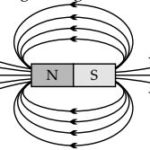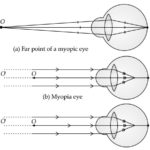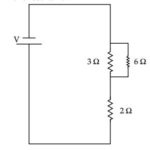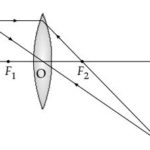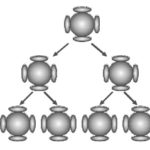Page 224 Question 1. Why does a compass needle get deflected when brought near a bar magnet? Answer 1 A compass needle is a small bar magnet. When it is brought near a bar magnet, its magnetic field lines interact with that of the bar magnet. Hence, a compass needle shows a deflection when brought near the bar magnet. Page 228 Question 1. Draw magnetic field lines … [Read more...] about Chapter 13 Magnetic Effects of Electric Current
NCERT Solutions
Chapter 11 The Human Eye and the Colourful World
Page 190 Question 1. What is meant by power of accommodation of the eye? Answer 1 When the ciliary muscles are relaxed, the eye lens becomes thin, the focal length increases and the distant objects are clearly visible to the eyes. To see the nearby objects clearly, the ciliary muscles contract making the eye lens thicker. Thus, the focal length of the eye lens … [Read more...] about Chapter 11 The Human Eye and the Colourful World
Chapter 12 Electricity
Page 200 Question 1. What does an electric circuit mean? Answer 1 An electric circuit is the pathway in which current can flow. It consists of electric devices, switching devices, source of electricity, etc. that are connected by conducting wires. Question 2. Define the unit of current. Answer 2 The unit of electric current is ampere (A). When 1 C of charge flows … [Read more...] about Chapter 12 Electricity
Chapter 10 Light Reflection and Refraction
Page 168 Question 1. Define the principal focus of a concave mirror. Answer 1 Principal focus or focal point: It is a point where incident rays which are parallel to principal axis get converged after reflection from the mirror. The principal focus always lies on the principal axis, and all the rays which is parallel to principal axis will pass through principal focus … [Read more...] about Chapter 10 Light Reflection and Refraction
Chapter 9 Heredity and Evolution
Page 143 Question 1. If a trait A exists in 10% of a population of an asexually reproducing species and a trait B exists in 60% of the same population, which trait is likely to have arisen earlier? Answer 1 In asexual reproduction, the reproducing cells produce a copy of their DNA through some chemical reactions. However, this copying of DNA is not accurate and therefore, … [Read more...] about Chapter 9 Heredity and Evolution
